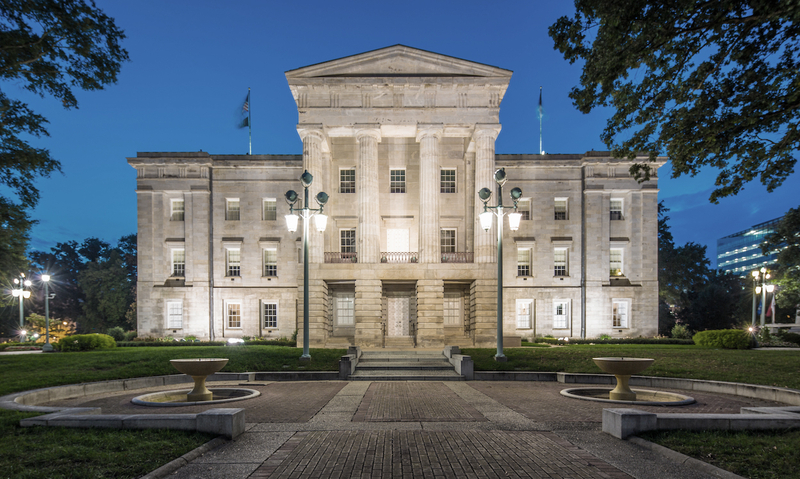Gov. Roy Cooper’s budget would fully fund year three of the Leandro remedial plan


The third year of the Leandro comprehensive remedial plan would be fully funded under a budget proposal released by Gov. Roy Cooper on Wednesday.
Cooper’s plan calls for spending $525.8 million on the school improvement plan that stems from the state’s long-running Leandro school funding lawsuit. He also proposes to spend $687 million more for K-12 and University of North Carolina system construction projects, repairs and renovations.
The remedial plan is based on a detailed school improvement plan developed by WestEd, a consulting firm hired by Cooper to examine public education in North Carolina. WestEd concluded that it would cost $5.6 billion over eight years to fully implement its recommendations.
“My budget fully funds the plan to ensure that every child receives a sound basic education and we know that it’s been a difficult couple of years for students, parents and staff,” Cooper said. “Children and educators are working hard to catch up on studies and they need more support.”
The Leandro conflict commenced nearly three decades ago, when school districts in five low-wealth counties sued the state claiming that children were not receiving the same level of educational opportunities as students in wealthier counties. School districts in Cumberland, Hoke, Robeson, and Vance counties joined Halifax in the lawsuit.
In 1997, the state Supreme Court issued a ruling, later reconfirmed in 2004, in which it held that every child has a right to a “sound basic education” that includes competent and well-trained teachers and principals and equitable access to resources.
The State Supreme Court is preparing to take up the case again after former Leandro judge David Lee ordered lawmakers to transfer $1.7 billion from its coffers to pay for the first two years of the remedial plan. Republican lawmakers contend the lower court doesn’t have the authority to order such a transfer. They also disagree with Democratic colleagues about how much of the $1.7 billion Lee ordered transferred is included in the current budget.
Teachers would also see bigger raises and master’s pay would be restored under Cooper’s proposal, which is essentially a revision of the second year of the state’s biennium budget lawmakers approved last year.
North Carolina’s Republican-led legislature ended salary increases for educators with advanced degrees in 2013, contending there is no evidence that teachers with master’s degrees help improve student test scores. Critics of the move say it has made it tougher for the state to recruit and retain quality educators.
Here are the expected impacts of Cooper’s proposed investment in education:
- Ensure all teachers receive at least a 7.5% raise over the biennium.
- Support up to 535 additional Teaching Fellows with forgivable loans.
- Provide up to 97,500 students with no co-pay, free school meals.
- Increase NC Pre-K reimbursement rates by 19%, and administrative reimbursement rates from 6% to 10%.
- Expand Smart Start services statewide and strengthen the Early Intervention program with increased staffing and professional development.
- Expand the Child Care WAGE$ program statewide to improve pay for early childhood educators.
Here’s the governor’s full budget proposal.

N.C. Association of Educators President Tamika Walker Kelly applauded Cooper’s revised spending plan.
“Among the highlights of Gov. Cooper’s budget proposal are much-needed salary increases and adjustments for educators, as well as a commitment to fund Leandro in its third year while providing $180 million in support to at-risk and low-income students,” Kelly said. “Given the latest state revenue projections, we feel confident that these are achievable goals.”
The state expects a $4 billion surplus this fiscal year and nearly $2 billion next year, according to a revenue forecast released this week by the legislature’s Fiscal Research Division and Office of State Budget and Management.
The state’s Republican leadership has not responded to Cooper’s proposal. The Raleigh News & Observer reported Senate Leader Phil Berger will address the proposal next week in the short session, which begins Wednesday.








